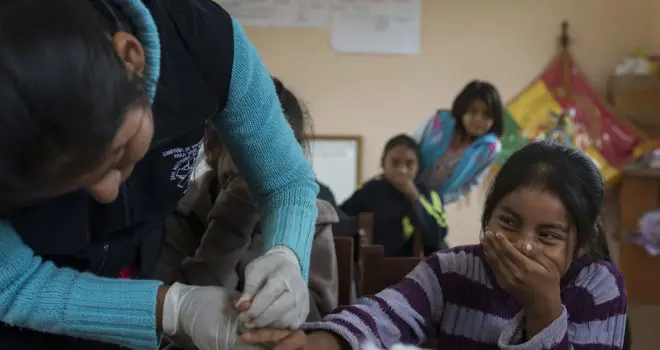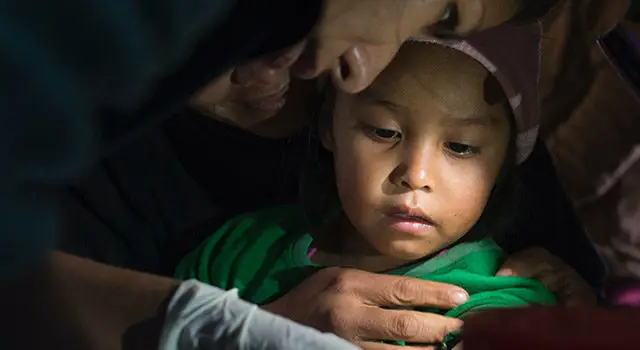Geneva/Rio de Janeiro (13 October 2020) – The impact of COVID-19 on people with underlying health conditions, particularly those affecting the heart, poses new public health challenges. In particular, little is known about how COVID-19 is impacting the millions of people worldwide with neglected diseases. This socioeconomically vulnerable population already faced significant challenges to accessing healthcare before the onset of the pandemic. Out of concern for COVID-19’s potential impact on the six million people living with Chagas disease, a neglected disease known to impact the heart and other organs, a group of multidisciplinary experts have developed a set of preliminary recommendations for care of people with Chagas disease during the pandemic. Published in Global Heart, the paper discusses prevention and care for both diseases, including cases of coinfection.
Caused by the parasite Trypanosoma cruzi (T. cruzi), Chagas Disease (CD) can take a multi-functional toll on the digestive system, the nervous system and the heart. Nearly seven million people live with CD and more than one million people suffer from Chronic Chagas Cardiomyopathy that diminishes the blood-pumping function of the heart, leading to heart failure, and often causes irreversible damage. Endemic to Latin America, the disease has a long asymptomatic phase, with many people going unaware that they are infected. Diseases such as Chagas were already neglected or “forgotten” before the pandemic; now, diversion of resources to fight the pandemic, strains on healthcare facilities, patient concerns about contracting COVID-19 when visiting clinics, and limited understanding of the interactions between diseases and their drug treatments are posing new challenges for confronting Chagas and other neglected diseases,
Fausto Pinto, President-Elect of the World Heart Federation and one of the paper’s authors, said: “COVID-19 disproportionately affects the most vulnerable either socioeconomically, due to age, or underlying health conditions; patients now face a double or triple plight as many are already at the social margins and suffering from neglected tropical diseases such as Chagas Disease that poses a medical challenge that deserves our attention and resources as much as any other.”
In both Chronic Chagas Cardiomyopathy and COVID-19, an inflammatory immune response and frequent co-morbidities increase the risk factors in patients. Questions to be studied further include the links between inflammation due to COVID-19 and that due to Chagas Disease, and the potential of the immune response in COVID-19 to worsen or reactivate Chagas Disease. Based on currently available data, the paper documents guidance as well as known information for different drug applications and interactions across both diseases. Also included are recommendations for screening and testing for persons with different manifestations of Chagas Disease, in pregnancy, and among those with compromised immune systems.
Sergio Sosa-Estani, Head of Chagas at DNDi and also one of the paper’s authors, said: “The current situation further exposes the underlying inequalities in access to care and urges better healthcare solutions for all patients. The pandemic affects treatment provision to people with acute or chronic Chagas Disease and patients suffering from cardiomyopathy require special consideration because of COVID-19’s potential impact on the heart. The recommendations for healthcare workers outline ways to keep all Chagas patients protected and also to optimize COVID-19 care for Chagas patients directly affected by COVID-19.”
COVID-19 and Chagas Disease share more than medical interactions and biological processes: both diseases affect some of the most vulnerable populations and raise urgent questions about accessible, affordable healthcare for everyone. In addition to outlining detailed medical approaches and recommendations for CD patients with COVID-19, the authors of the paper call for concerted, sustained action to address neglected diseases. By highlighting the gaps and needs in understanding the interaction between COVID-19 and Chagas Disease, the authors hope to stimulate further research and public health investment and ultimately to bring out of the shadows diseases that have been ignored for too long.


